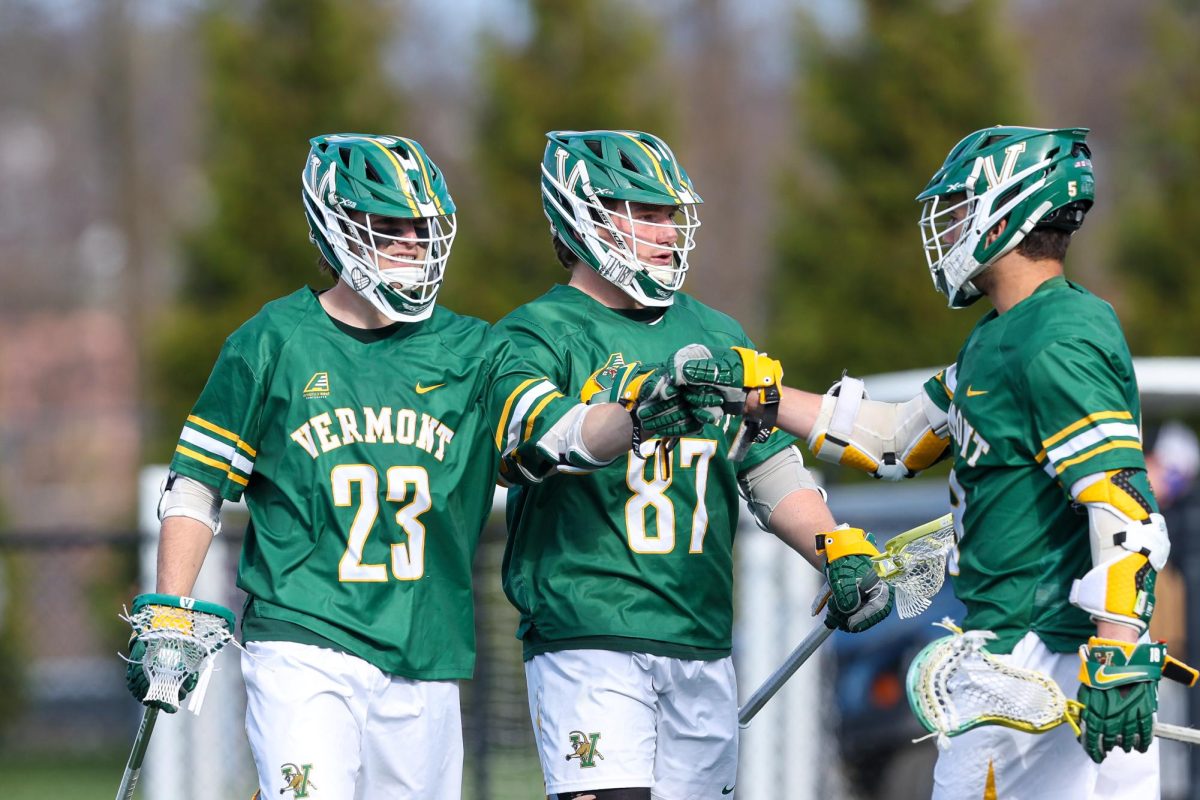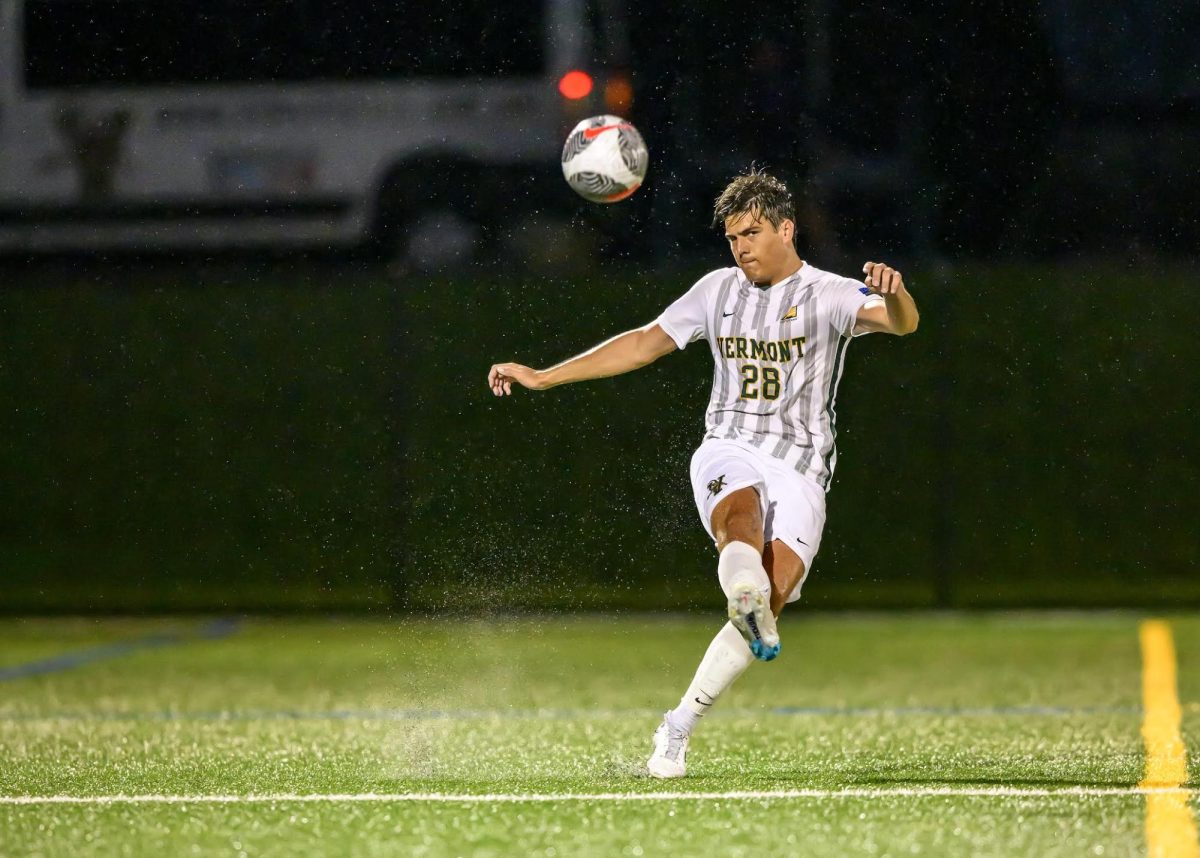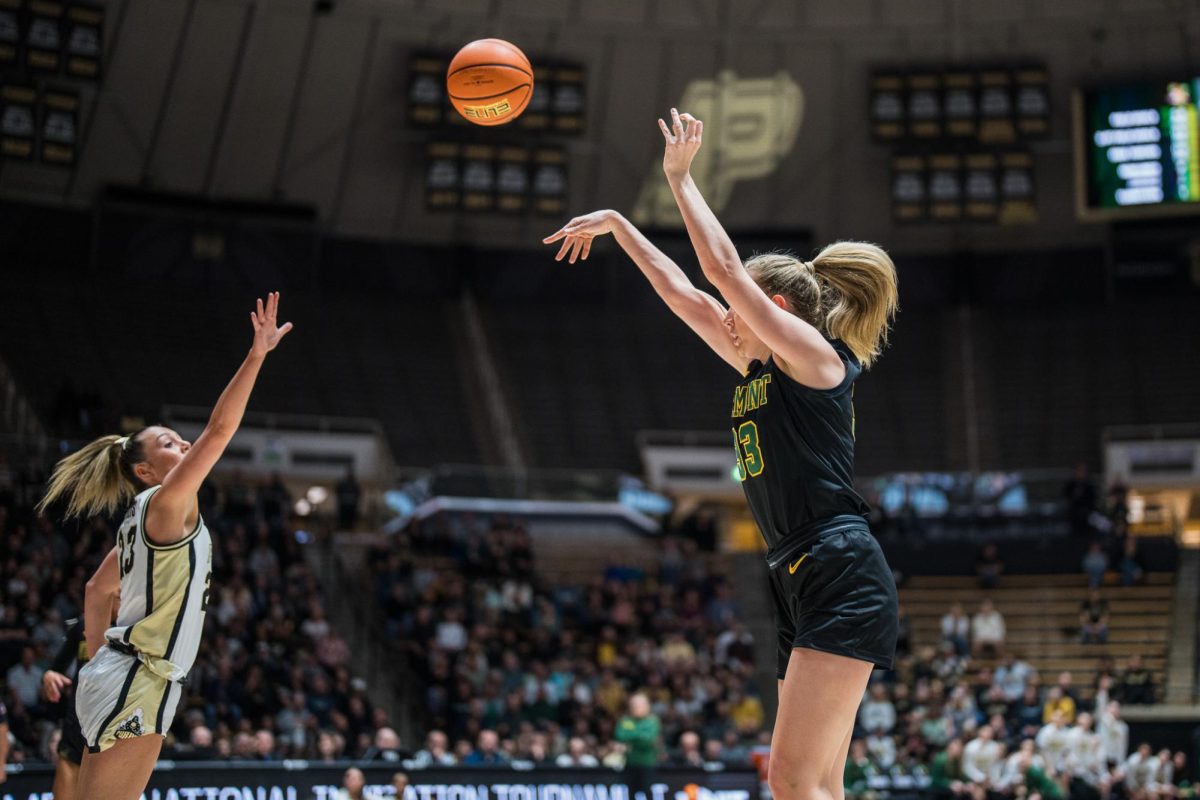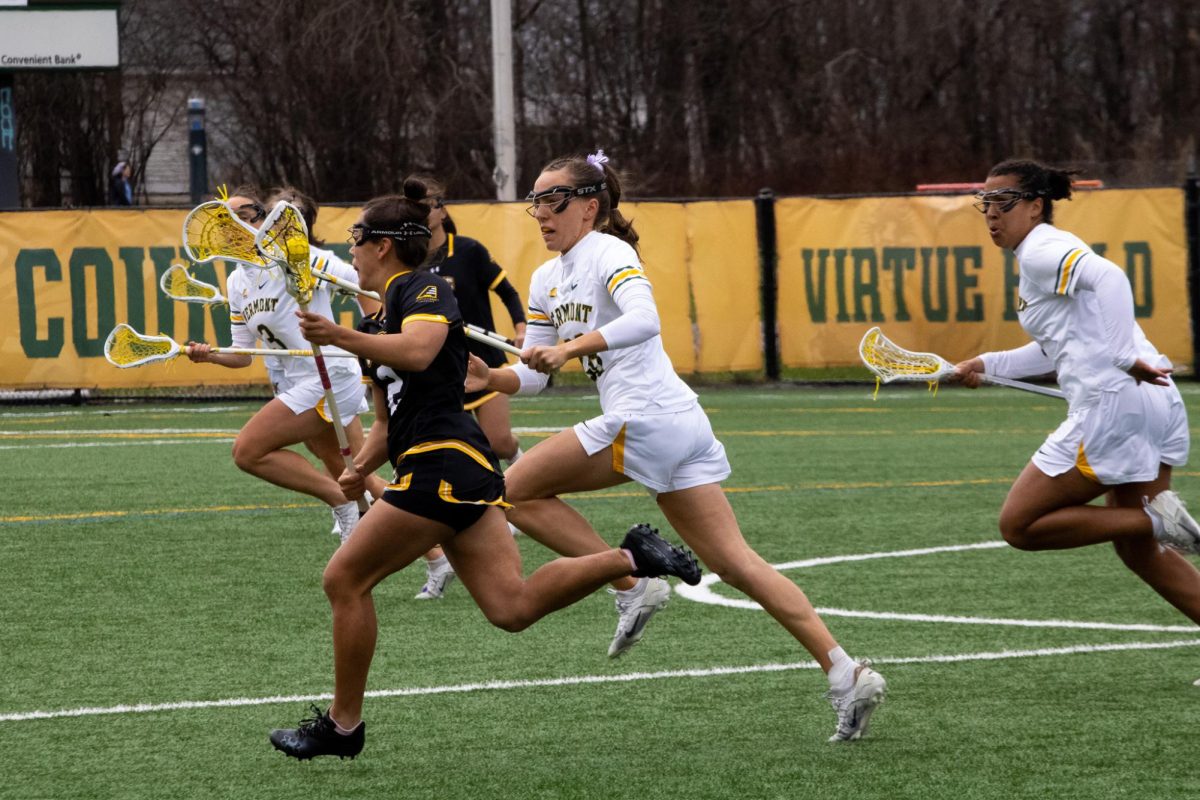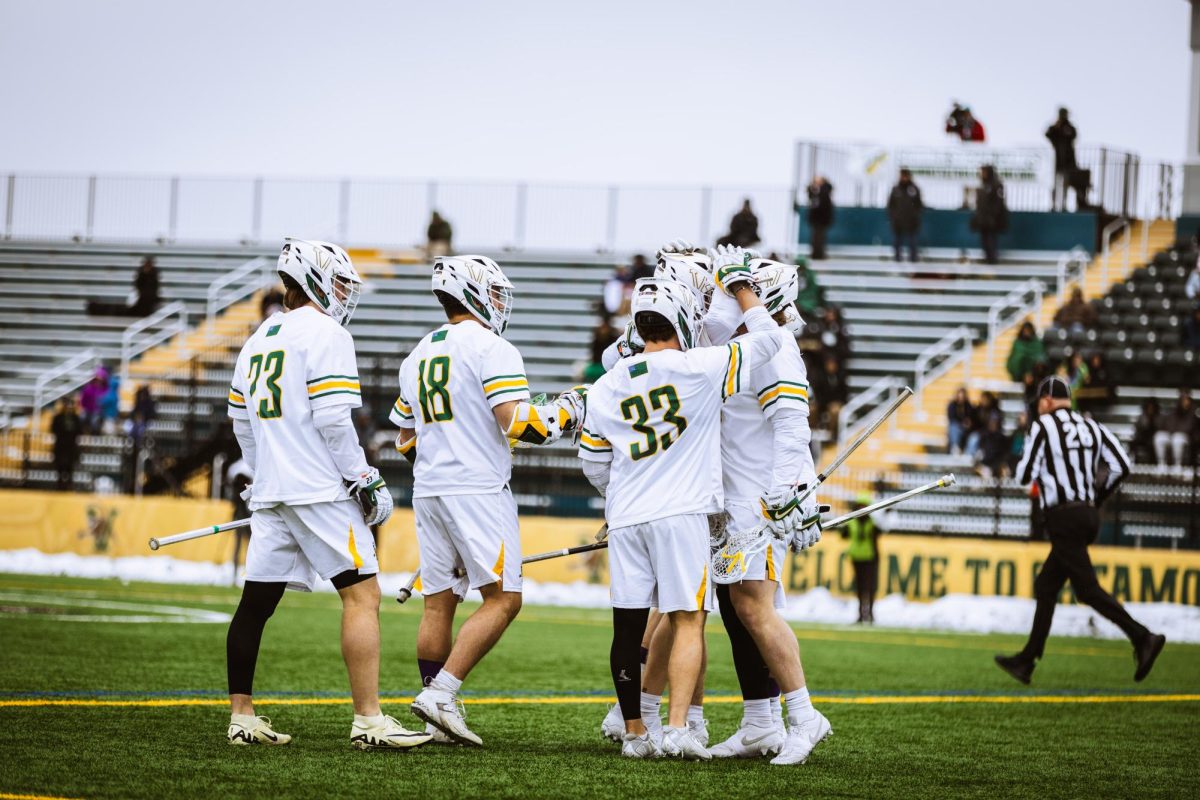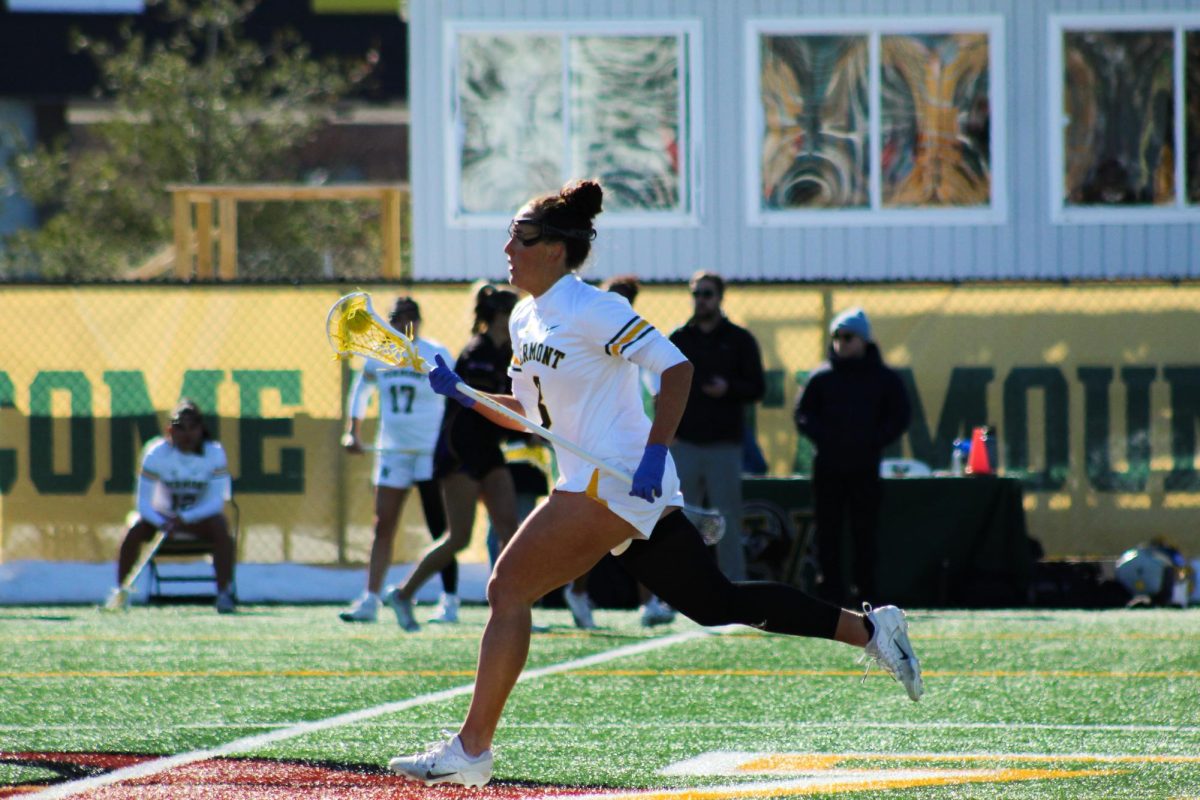Growing up a regular baseball addict in New England, Galen Carr had little choice but to live, breathe, and dream everything Boston Red Sox from birth.
Like most Little Leaguers from Pittsfield, MA to Burlington, Vt., Carr fantasized about one day calling Fenway Park home as a member of the old town team.
However, what separates the Northampton, MA native from his childhood peers is the way in which he directly affects the performance of the Red Sox.
Carr, a former varsity pitcher and graduate of Colby College, may not take the ball every fifth day alongside Curt Schilling and Jonathan Papelbon, but instead he advises Theo Epstein and company as an advanced Major League scout.
Still, politely modest and highly articulate, Carr who recently hosted an open discussion at Patrick Gymnasium on Feb. 18-is not one to overlook how truly blessed his nine-to-five is.
“I am pretty fortunate. Obviously being from New England, to work for the Red Sox is the dream of a lot of kids and for me it certainly applies. I’ve been really lucky.”
Climbing the Ladder As an American Studies major, Carr began his quest into professional baseball in the summer of 1997.
Interning for the Montreal Expos’ AAA affiliate, the Vermont Expos, the former Northfield Mount Hermon graduate and Walpole, NH resident worked on everything from ticket office duty and press re-lease coverage to hosting onfield promotions.
“Long hours, didn’t get paid anything, but it was fun. It was a great experience.”
Crediting both patience and persistence, Carr networked within the Montreal organiza-tion.
After making connections and following leads, and with the help of some old fashioned luck, Carr secured an internship in baseball operations for the Boston Red Sox just two years removed from gradua-tion.
He went on to spend six years overseeing the advanced scouting program.
“If we are playing the Orioles next week, this week I would be watching the Orioles trying to pick up on strengths, weaknesses and tendencies for every player on the 25-man roster.
“Subsequently we would compose full page reports on each player along with charts and video and submit that to coaching staff on a series by series basis.”
If catcher Jason Varitek re-ceives a pitch-out signal from manager Terry Francona and rings up speedster Brian Rob-erts attempting to steal second, that’s Carr.
Today, Carr splits his time during the season traveling to big league parks and working at home in Burlington scouting from videos.
Carr enjoys the tremendous freedom his job allows, especially the flexibility it provides him to spend quality time with his wife, Jenni, and their 16-month-old son, Miles.
“At this point in my life it’s great to spend that much time with my family. Right now I feel really good about where I am.”
There’s a lot that goes into the word “talent” As an advance scout, Carr’s overall examination of a player is greatly influenced by traits other than athletic ability and physical talent.
More than just the ability to crush a 95 m.p.h. fastball onto the Mass Pike or buckle A-Rod’s knees with a Barry Zito-like 12-6 curveball, talent as Carr explains- is mul-tifaceted.
“When a scout is behind the plate they are going to be struck by players that give an all-out effort, hustle on every play, support their teammates, keep their head up when times are rough and experience failure and get through it.”
These often overlooked at-tributes-which Carr refers to as a player’s “makeup”-are instrumental when evaluating a prospect and gauging their potential at the Major League level.
Carr points out the example of a catcher coming up to bat in the late innings after previously going 0-4.
If “the catcher has caught a really good game and is in great spirits after the game because the club won, that says a lot about a player.”
In an athletic world diseased by the selfish cancers of certain high profile players (i.e. Terrell Owens), Carr is highly impressed by a player who puts the team above himself.
He also reveres those who continue to play for the love of the game.
For the true card-carrying members of Red Sox Nation, it is players like late ’90s setup man and cult hero Rich “El Guapo” Garces who is playing this season for the Nashua Pride of the Independent League.
“Guys that haven’t made a whole lot of money, making peanuts kicking around independent leagues says a lot about their character. They truly love baseball.”
These guys are just like everyone else
So what’s it like hanging out with Big Papi, Manny and Schill?
“It’s fun. At first I was a little intimidated as an intern, but you see a lot of these guys care about you.
“David Ortiz, for example, is just a great guy. These guys are just like everyone else they just happen to get a huge paycheck every couple weeks.”
What made the curse-breaking 2004 season so re-warding?
Besides recording the greatest comeback in sports history against the rival New York Yankees and exorcizing the demons of Harry Frazee and “No No Nanette,” the Sox experienced a shared sense of accomplishment within the organization as a whole.
“When you’re working day in and day out for an organization and see that culmination of everyone’s hard work in a championship there’s no bet-ter feeling.”
Throw 26 year-old Japanese pitching phenom Daisuke “Dice-K” Matsuzaka, spark-plug shortstop, lead off man Julio Lugo and power hitting right fielder J.D. Drew into the mix and Carr believes this year’s edition might rival that of 2004.
“It’s exciting when you look at the names on that 40-man roster. Our offense should be powerful.
“At this point, our rotation seems to be stacked. We have so much depth both in the mi-nors and the bullpen.”
Dissecting the Psyche of Red Sox Nation
As a Massachusetts native and higher-level employee of the Red Sox organization, Carr provides a unique insight into the nature of the recent band wagon phenomenon that is “Red Sox Nation”.
Prior to 2004, the heartbeat of Sox fandom was characterized by the peculiar camaraderie of history and failure.
From Bucky “Bleeping” Dent in ’78 to Bill Bucker in ’86 and most recently Aaron Boone in 2003, the heartbreak that Sox fans have endured has been devastating.
Still, having such passion and unwavering devotion for the Red Sox is almost a rite of passage in the greater Boston area.
“When I was 11 years old watching the 1986 World Series it was heartbreaking and I was only 11. How does that happen? It was all the [culture] constantly pounded into your brain about ‘The Curse,'” Carr explained.
“Somehow [the Sox] made you feel and experience all the heartbreak, but maintain that devotion and loyalty.”
Today, in wake of the 2004 campaign, an influx of new fans and heightened interest in the club has given rise to a highly optimistic and every growing Red Sox Nation.
“Our fanbase seems to be headed in a whole new direc-tion. History is still [a characteristic] but failure is not any-more.”
Despite his high profile position in one of professional sports’ major franchises, Carr has not lost his love for the game or his team.
“Certainly the most rewarding part [of the job] has been being tied to and emotionally invested, like a lot of fans but in a different sense, to the wins and losses at the big league level.”
This devotion lends Carr the distinction of being a true baseball fanatic.
For a man whose only jewelry includes a wedding and a World Series ring, the historic ride of 2004 is something Carr will always look back on with pure ecstasy, satisfaction and a once in a lifetime sense of accomplishment.
“Being in the clubhouse after we won the World Series and after we beat the Yankees in the playoffs are experiences obviously as a Red Sox fan growing up that I’ll never forget.”











